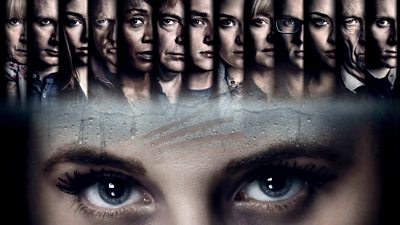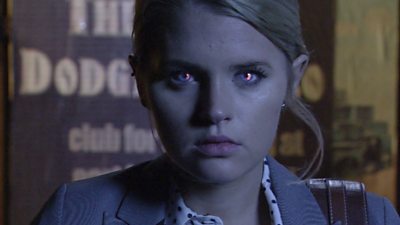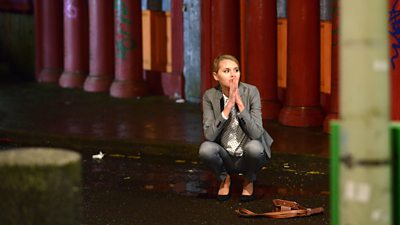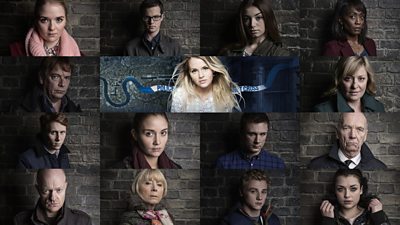Editor's note: This week is marking its 30th anniversary with a special week of programmes and features which will reveal the murderer of . There will be live elements in the episodes from Tuesday to Thursday, culminating in a fully live half hour episode on Friday 20th February 2015. We spoke to the writer James Payne about his EastEnders journey and the rewards, challenges and responsibilities of creating this iconic moment in the show's history.

How did you become a writer for EastEnders? What was your journey as a writer before then?
I've had two stints on . One from 2002-2009; and one from last year until now. This time around the process involved (Treadwell-Collins, EastEnders Executive Producer) asking me to write a couple of episodes (Lucy Beale's death aftermath in April) which I couldn't turn down as the material was so powerful.
Originally though I became a writer on EastEnders by not taking no for an answer. I grew up in East London. EastEnders was my dream job. I wrote letters, phoned people randomly, tapped up tenuous contacts, begged and pleaded basically. I was turned down three times. Eventually I managed to land a spot on a shadow scheme EastEnders were running. They liked my work and I was offered a commission. I grabbed the chance and never looked back.
Before EastEnders I had a couple of years on . I learned a lot up in Liverpool from the great . Experience of the writers' room, understanding story and working swiftly across multiple drafts stood me in good stead for the tornado of EastEnders.
Before Hollyoaks the road was long and wind-y. I signed on for three years, writing all kinds of things - Radio, comedy sketches, stand-up material - most of which never saw the light of day. While it felt at the time as if I was banging my head against a brick wall in hindsight I realise that bit by bit, contact by contact, script by script, progress was being made.

When did you find out you were going to be writing the live episode and what was your reaction?
I was asked last year. I felt honoured and jammy.
What has it felt like being privy to a secret that has reportedly resulted in over £10 million of bets – the murderer of Lucy Beale?
Keeping secrets is part of the job. This one has been bigger than most. While people have certainly tried to get the identity of Lucy's killer out of me I've found it pretty easy to say nothing. Spilling the beans could necessitate a rewrite on the live episode and that's something I really don't fancy doing!
What are the particular challenges of writing a live episode, do you have to change anything? What makes it special?
Logistics are the primary challenge. The lot and the studios are physically in different places. So you have to allow time in the script for actors to move from one place to another.
What makes it special is the one-shot nature of it. There's a frisson of danger. Things can go wrong. But it can also bring a real energy to performances. My hope is that audiences will feel they are really there in the moment with characters they love and know. Being live can amplify that feeling.

How do you plan and storyline such a long running plot strand? What is the process?
This is one probably best answered by Alex Lamb (Story Producer), the architect of the 'who killed Lucy' story. I'm pretty sure this devilish whodunit has been germinating in his mind for years. With long running stories, the challenge is finding the twists and turns to keep it interesting. I think this story has had loads. I loved and then getting run over for example.
How does it work being part of a team of writers on EastEnders?
The primary job is to take the episodes you've been given and make them sing.
Beyond scripting, you can be invited to contribute to the story process either at monthly meetings or long term meetings. I love story meetings. I'm never happier than when sitting in a room with other writers, talking nonsense. And when that idea comes out of someone's mouth that silences the room it's a great feeling.
Did you have to write lots of alternative versions? How many drafts did you go through?
No alternate drafts. It was slightly unusual in the sense that part of the episode wasn't storylined in the traditional sense. I did have a whispered meeting with Alex Lamb, Sharon Batten (EastEnders Senior Producr) and Manpreet Dosanjh (Script Producer). Off the back of that I knew exactly what I was going to write. Even though there was a lot of scrutiny on the script it was relatively straightforward - 4 drafts I think.
How do you tackle writing about such emotive topics as murder and grief?
Grief is universal. We'll all feel it at some point in our lives. Honestly, I just wade into it and see what happens.

Why do you think Continuing Dramas like EastEnders are important for writers?
What you write gets made - That's the point of being a TV writer. Along the way you'll make mistakes of course but you'll learn how to collaborate and understand what it is that you want to say. You'll also get an understanding of the way TV works, the people in charge, who goes where.
What advice would you have for anyone trying to get into writing for TV
Work hard. Try not to be a d*ck. Seize your opportunities. Do your talking on the page.
